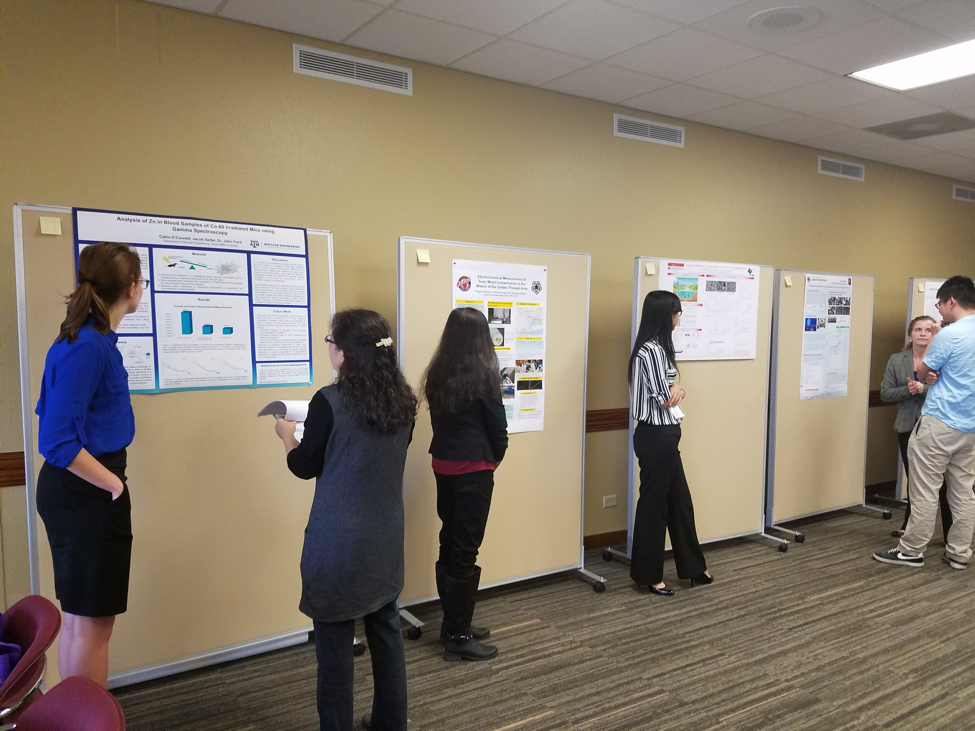
Undergraduate student researcher Cailin O’Connell placed first in the 2017 Society of Women Engineers Region C Conference for her project on studying the connection of trace elements of zinc and their ability to be used as treatment indicator for treating cancer to ensure accurate radiation dosages.
Certain trace elements have the possibility to negate the effects of dangerous free radicals that can be created in the body during radiation and O’Connell’s project is breaking fundamental ground in helping to understand how these elements may open pathways to better treat patients.
O’Connell’s participation in this research project is supervised by Rihana Bokhari, a kinesiology doctoral student working under a research grant from NASA in relation to space biology research. Dr. Susan Bloomfield, professor in the Department of Health and Kinesiology at Texas A&M, is the principal investigator on the project.
“When you’re exposed to radiation, free radicals are created in the body and zinc makes those free radicals, which are missing an electron, fulfilled by giving them an electron,” O’Connell said. “If this doesn't happen, free radicals can go on to create a chain reaction where they take an electron from a water molecule, and that water molecule goes on to take an electron from another water molecule, and so on. DNA is surrounded by water, so you have this issue where you get problems like carcinogenesis where you have cancer that starts in the body because of irregularities in DNA.”
O’Connell explained that through the team’s experimentation they hope to use this data, with zinc as an example, to create a diagnostic tool for determining how trace elements at specific quantities in the body can help or hurt patients so it can be applied to future research.
The mechanisms of how the trace elements effect the absorption of free radicals within the tissues are not yet entirely clear, but O’Connell is excited to have contributed to what she views as fundamental research that may one day lead to something better. The research, which began as a part of Texas A&M’s Summer Research Grant Program, has contributed to her professional success by helping her secure an internship with Oak Ridge National Laboratory this summer.
“There is not a lot of research in this area so we are breaking new ground on this right now,” O’ Connell said. “We’re trying to find this threshold where we are causing more good than harm with these treatments. It is very cool for me to think that someone could read my research in a journal one day and that could become a stepping off point for them. Just seeing all the cumulative buildup of this knowledge is cool and I've been excited to be a part of that.”
This project is sponsored by NASA via the Space Biology Grant. The grant number is NNX13AL25G.